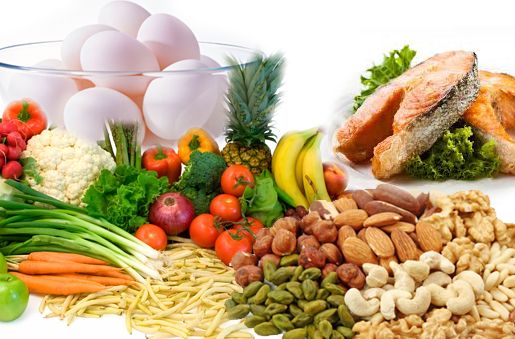Fibroids are abnormal growths in the uterus. They’re also called uterine fibroids, myomas, and leiomyomas. Fibroids aren’t cancerous or life-threatening, but they can sometimes cause complications and health problems.
Fibroids form in and around the uterine walls. They’re made of muscle and other tissues. They may be as tiny as a seed or grow larger than a tennis ball. You may have multiple fibroids or just one.
Doctors don’t know exactly what causes fibroids. Having overweight or obese increases your risk, as does having low levels of some types of nutrients.
Prevalence.
Almost 80 percent Trusted Source of women has fibroids in their lifetime. This condition may also be genetic. You’re at higher risk if your mother or sister has fibroids.
Fibroids can cause symptoms and complications such as:
Pain
Heavy menstrual bleeding
Constipation
Anemia
Difficulty getting pregnant
Miscarriages.
However, only 20 to 50 percent of trusted sources of women with fibroids have symptoms. In most cases, treatment isn’t needed. Your doctor may recommend waiting and watching to see if the fibroids go away on their own.
While foods can’t treat or prevent fibroids, your daily diet and lifestyle may play a role in reducing your risk. Diet can help balance hormones that may trigger these growths. Certain foods may also help ease fibroid symptoms.
Diet and lifestyle changes to lower risk.
There are a number of changes you can make that might help reduce your risk for fibroids.
Follow a Mediterranean diet.
Add plenty of fresh and cooked green vegetables, fresh fruit, legumes, and fish to your plate. A Mediterranean diet is one way to do this. Research shows that eating these foods regularly may help lower your risk for fibroids. On the other hand, eating beef, ham, lamb, and other red meat may raise your risk.
Check out a beginner’s guide to the Mediterranean diet for tips and a meal plan.
Cut back on alcohol.
Drinking any type of alcohol may increase your risk for fibroids. This can happen because alcohol raises the level of hormones needed for fibroids to grow. Alcohol may also trigger inflammation.
One study found that women who drank one or more beers a day increased their risk by more than 50 percent. Avoid or limit alcohol to help reduce your risk.
Balance estrogen.
Estrogen is a hormone important for healthy fertility in both women and men. However, too much estrogen can increase your risk for fibroids Trusted Source or make them worse.
Many treatments for fibroids work by lowering estrogen levels. Other ways to balance estrogen levels include:
Losing weight. Obesity and excess weight increases the risk for fibroids. Fat cells make more estrogen, so losing weight may help prevent or slow the growth of fibroids.
Avoiding hormone-disrupting chemicals. Natural and synthetic chemicals can throw off your endocrine balance, raising estrogen levels. These chemicals can leach into your body through skin and food.
Avoid or limit coming into contact with chemicals found in:
Fertilizers
Pesticides
Plastics such as BPA
Nonstick coatings on cookware
Fire retardants
Dyes
Paints
Some personal care products
Lower blood pressure
Research shows that a high number of women with severe fibroids also have high blood pressure. More research is needed to find out if there’s a link.
Balancing blood pressure is vital for your overall health. Try these tips:
Avoid added salt. Flavor food with herbs and other spices instead.
Limit high-sodium processed and packaged foods.
Check your blood pressure daily with a home monitor.
Exercise regularly.
Lose weight, especially around the waist.
Avoid or limit alcohol.
Increase potassium by eating a majority of plants at each meal.
Quit smoking and avoid secondhand smoke.
If you have high blood pressure, take medication as prescribed.
See your doctor for regular checkups.
Get enough vitamin D
Vitamin D may help reduce your risk of fibroids by almost 32 percent Trusted Source. Your body makes this “sunshine vitamin” naturally when your skin’s exposed to sunlight. If you have darker skin or live in cooler climates, you’re more likely to be deficient.
Supplements can help raise your levels, along with foods such as:
Egg yolks
Fortified milk, cheese, and dairy products
Fortified cereals
Fortified orange juice
Fatty fish such as salmon, tuna, and mackerel
Cod liver oil
A note about smoking and diet.
Eating brightly colored fruits and vegetables is good for your general health. Consuming a variety of red, yellow, and orange foods will provide rich antioxidants. Dark greens are also nutrient-dense and will provide healthful benefits. These nutrients may help protect you from diseases, including some cancers.
However, a study found that beta carotene found in red, yellow, and orange foods didn’t lower the risk for fibroids. In smokers, beta carotene may even increase risk. Further research is needed on why this might happen. In any case, smoking is harmful to your health and may increase your risk of fibroids.
FOODS TO EAT IF YOU HAVE FIBROIDS.
Diet alone can’t treat fibroids. However, a balanced diet may also help ease some fibroid symptoms and complications. Certain foods may help slow fibroid growth in some cases.
Fiber.
Fiber-rich foods aid weight loss and balance hormones. They also help to keep blood sugar levels steady. For these reasons, fiber may help prevent and slow the growth of fibroids. Add these whole foods to your diet:
Cooked and raw vegetables
Cooked, raw, and dried fruit
Whole grain bread and pasta
Cruciferous vegetables
Oats
Lentils
Barley
Beans
Potassium
Potassium helps to counter the effects of salt to balance blood pressure Trusted Source. Add these potassium-rich foods to your daily diet:
Avocado
Bananas
Citrus
Cantaloupe
Collard greens
Dates
Lentils
Oat bran
Potatoes
Tomatoes
Dairy
Add dairy products such as yogurt and full-fat cheese to your diet. Dairy is rich in calcium, phosphorus, and magnesium. These minerals may help prevent fibroids and slow their growth. Fortified milk also contains vitamin D.
Green tea
Green tea contains several antioxidants. A study Trusted Source found that one of these, epigallocatechin gallate, may help slow the growth of fibroids by bringing down inflammation and high estrogen levels. Green tea may also improve symptoms of heavy bleeding due to fibroids, such as low iron.
FOODS TO AVOID IF YOU HAVE FIBROIDS.
Sugar
Sugary foods and simple carbohydrates may trigger or worsen fibroids Trusted Source. These foods spike blood sugar levels. This causes your body to make too much insulin. Excess insulin can cause weight gain and affect fibroid growth.
Avoid refined carbs and added sugars such as:
Table sugar
Glucose
Dextrose
Maltose
Corn syrup
High fructose corn syrup
White bread, rice, pasta, and flour
Soda and sugary drinks
Fruit juice
Potato chips
Crackers
Packaged energy bars
Estrogen-increasing foods
Some foods contain natural ingredients that mimic the estrogen in the body, called phytoestrogens. Other foods have added hormones or trigger your body to make more estrogen.
Some of these foods may have protective effects when consumed in small to moderate amounts but have negative effects when consumed in high amounts Trusted Source.
You may need to limit or avoid foods such as:
Red meat from sources that include added hormones
Soybeans
Soy milk
Tofu
Flaxseed








